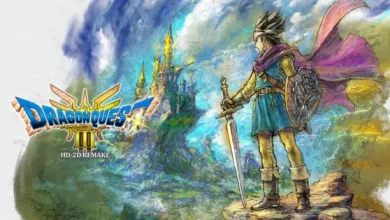The New Recruit Volumes 1-2 Novel Review – Review

The New Recruit, a Korean BL novel, is a sign of a changing publishing landscape. By this I mean that by the fall of 2024, it will be available in English in three different formats: this original novel, published digitally by Mullebooks, the all-ages version of the manhwa, available digitally from Manta (both on their app and as e-books), and the mature version of the manhwa in print from Seven Seas. It’s an interesting exercise, and it means that readers have the chance to experience Moscareto’s story in the format that suits them best, or all three if you enjoy comparing and contrasting. But the novel is where the franchise began and that makes it part of a small but growing number of Korean works with both book and comic formats released in English.
Fortunately for us, this is also a good story. It follows the start of the relationship between two men working for the same advertising agency, and it feels at least more realistic than many office romances in pop culture. We enter the story with Seunghyun, a twenty-nine-year-old man who has recently completed his master’s degree and is trying to figure out what to do with his life. Part of the problem is that he spent most of his time in school with a crush on an older student, and he let that crush drag him along without giving quite enough thought to what he wanted to do post-graduation. The result is that he has degrees from a prestigious university but not much else. That makes standing out in the pool of job seekers difficult. When his college friend Jiyeon mentions that they’re looking for interns at her workplace, he takes the chance and ends up working under a thirty-five-year-old man named Jongchan Kim.
One of the most interesting aspects of the story, especially for those accustomed to the norms of Japanese BL works, is the way that Moscareto incorporates slightly more realistic elements of what it means to be queer in South Korea. By no means should this be taken as a faithful depiction on that front, because it’s still a romance novel, but Seunghyun (and Jiyeon) were both members of their university’s LGBTQIA+ club and mention is made of how being queer has an impact on Seunghyun’s and Jongchan’s lives. Both men are in the closet publicly, but there’s no mention of them being afraid of being outed; the impression given is that their sexuality is their business and no one else’s. That said, there’s still a level of caution implied, and Seunghyun very much wants to keep the fact that he was in his school’s LGBTQIA+ club a secret, with a few mentions of how the club’s reputation wasn’t the best. Still, the book is largely devoid of some of the more troubling elements of the genre, most notably the “gay for you” trope – both men are aware of their preferences and comfortable with them, and the relationship they embark on is very much mutual.
Or at least as mutual as Seunghyun can manage – one of the defining traits of his character is the fact that he spent about a decade of his life nursing the same fruitless crush on an upperclassman. He never was able to bring himself to say anything about it to anyone but Jihyeon, and he recognizes that he allowed his attraction to essentially stop him in his tracks. His inability to tell the other man his feelings is entirely his own issue, and he knows that; there is no real reason why he couldn’t say anything, especially considering that the other man is gay, too. A piece of Seunghyun seems to recognize that he used his crush as a way to keep from having to think about making a move in any area of his life. If it held him back, it was because he at least partially consciously let it, and his tentative steps towards Jongchan in volume one indicate that there’s a level of anxiety that keeps him from acting. He and Jongchan can start a relationship because Jongchan isn’t trapped by the same kind of anxiousness, and his willingness to go for something helps Seunghyun to act as well.
Not that Jongchan is a virtuous super prince. His reputation at the company as a hardass who refuses promotions because he, astoundingly, enjoys what he does is deserved; he’s an industrious hard worker and doesn’t suffer fools. He’s taken aback when he realizes that Seunghyun is far above the typical intern in both age and drive, and he almost unconsciously begins mentoring him. Does this give their romance a whiff of a dangerous power dynamic? Yes, absolutely, but Moscareto seems aware of it and works to shift things so that the power politics become Jongchan helping to empower Seunghyun and protecting him from interoffice hazing. Despite the differences in their work positions, by the midpoint of the novel Seunghyun has become someone Jongchan can talk about anything to, and one of his understated frustrations is that his boyfriend doesn’t seem to be quite as comfortable with him on that front.
The power issue comes to the fore in volume two, which covers the end of Seunghyun’s internship and his application for full-time work at the company. Jongchan, and pretty much everyone else, is convinced that he’s a shoo-in, not just because he’s been an intern, but because the quality of his work has been exceptional. But what no one counted on was Jongchan’s reputation and how his mentorship of Seunghyun looked to his enemies. Rather than wanting Seunghyun to succeed because he’s good for the company, they’d rather see him fail to get back at Jongchan. It’s an interesting use of the power dynamics in the office and within the relationship because it forces Jongchan to think about someone else’s career. If he wants to keep working with his boyfriend, he’ll have to find a way to protect him without it looking like he’s doing so, and that takes the older man far outside his comfort zone in several ways. The results are fairly understated, which is an interesting choice, but still in line with how Moscareto tries to keep things on a more realistic level rather than ramping up the drama all the time.
As the existence of both an all-ages and a mature manhwa suggests, this is on the racier side. While there’s no penetrative sex in volume one, there are still several explicit scenes. As per genre norms, there’s also some unintentionally entertaining discussion about the size of Jongchan’s penis, but on the whole, the scenes are among the less cringey I’ve encountered and about middle-of-the-road in descriptiveness. Volume two, however, starts with a bang – an eighteen-page sex scene, and the included side story is essentially a fifty-page sex scene. To call these (especially the latter) overwritten may be the understatement of the decade, and there are a few anatomically questionable elements. The bigger issue is that they’re simply too descriptive; this is a case where “less is more” would have been the writing precept to follow. The translation falters a bit during the raunchy bits as well, with one line in volume one making it sound as if the two men share one penis between them. My only other complaint is the consistent use of the term “gays” to describe queer people, something that’s, in my experience, not generally done in American English today.
The New Recruit is a treat for office romance fans, and a good BL novel series (the second book mentions that a third is forthcoming) for anyone looking for one. It hews closer to the tropes of general romance than those we associate with Japanese queer light novels, and we get a good sense of who both Jongchan and Seunghyun are as people. Book lovers should be glad we’re getting more English translations of Korean pop fiction because if there’s one thing we should all be able to agree on, it’s that having more reading options is always a good thing.
Source link
#Recruit #Volumes #Review #Review


